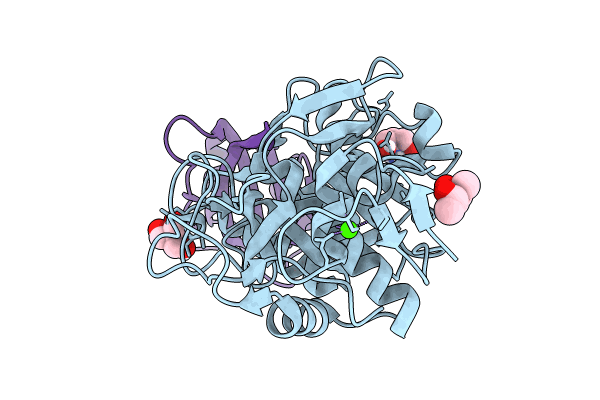
Deposition Date
2023-01-05
Release Date
2024-07-17
Last Version Date
2024-11-20
Entry Detail
Biological Source:
Source Organism(s):
Actinomadura keratinilytica (Taxon ID: 547461)
Expression System(s):
Method Details:
Experimental Method:
Resolution:
1.52 Å
R-Value Free:
0.17
R-Value Work:
0.15
R-Value Observed:
0.15
Space Group:
P 1 21 1


